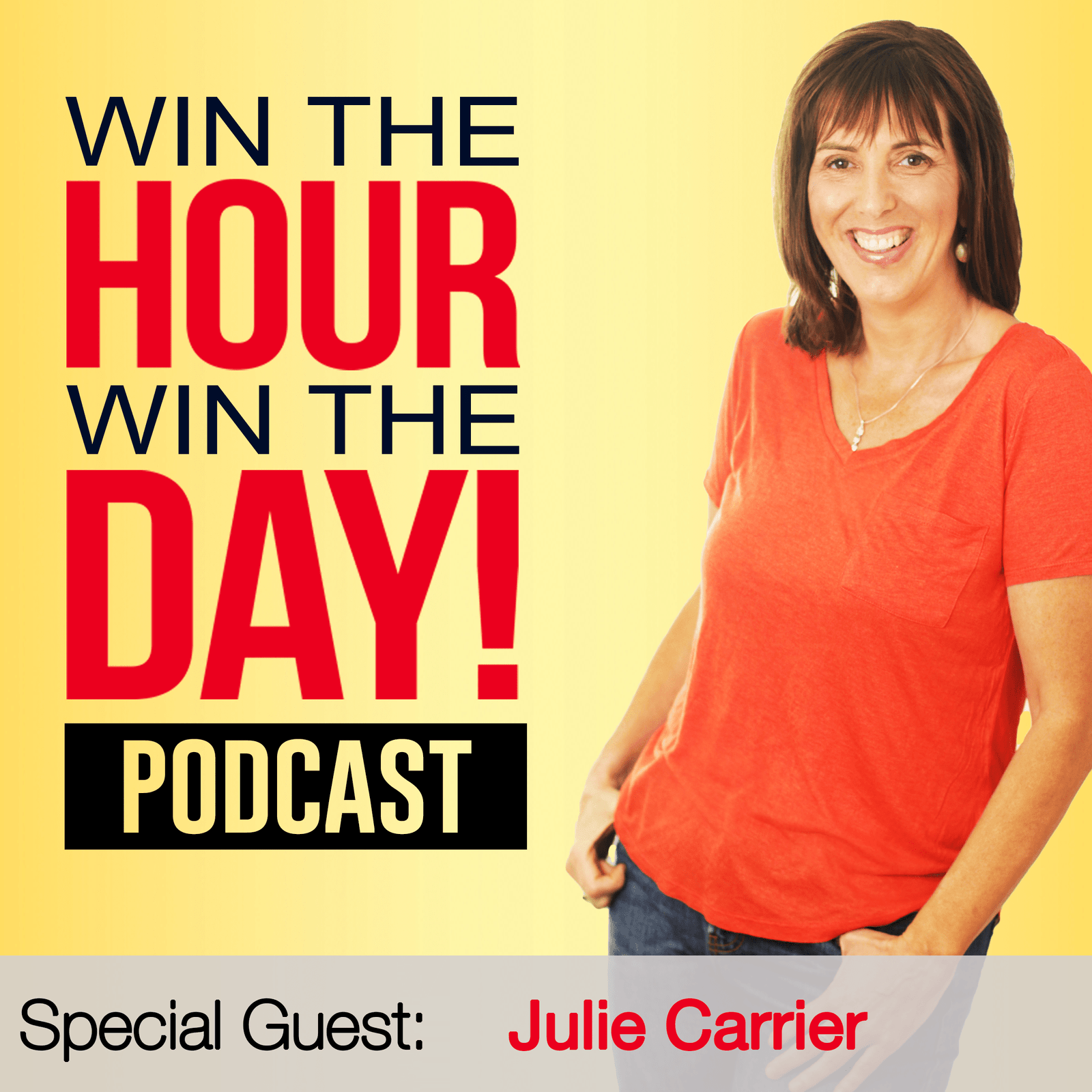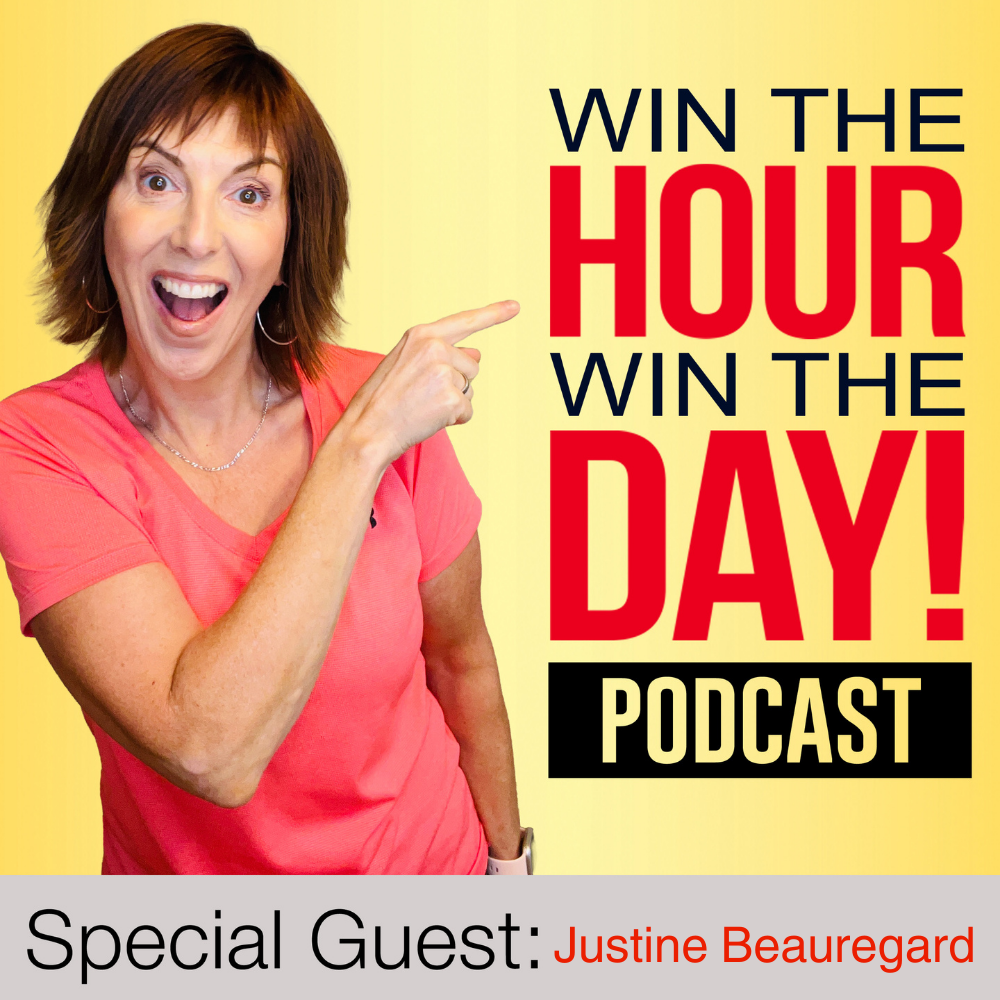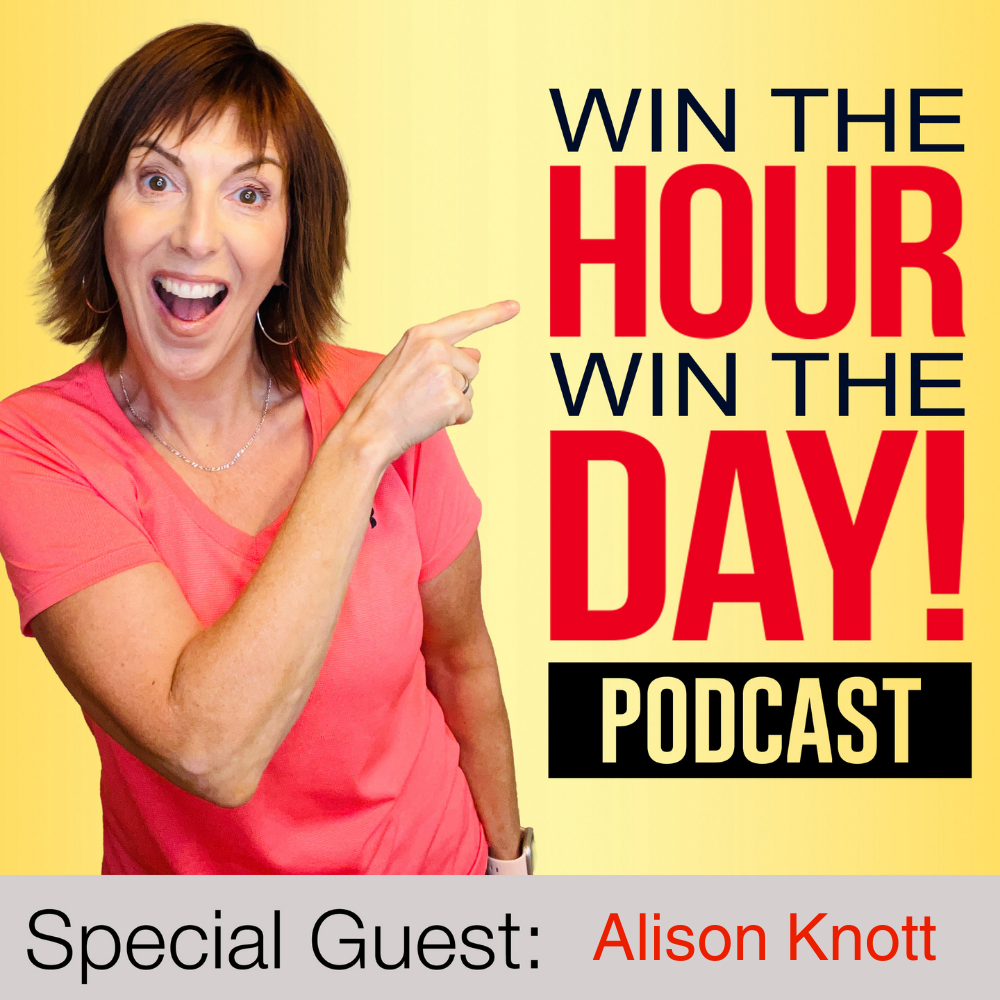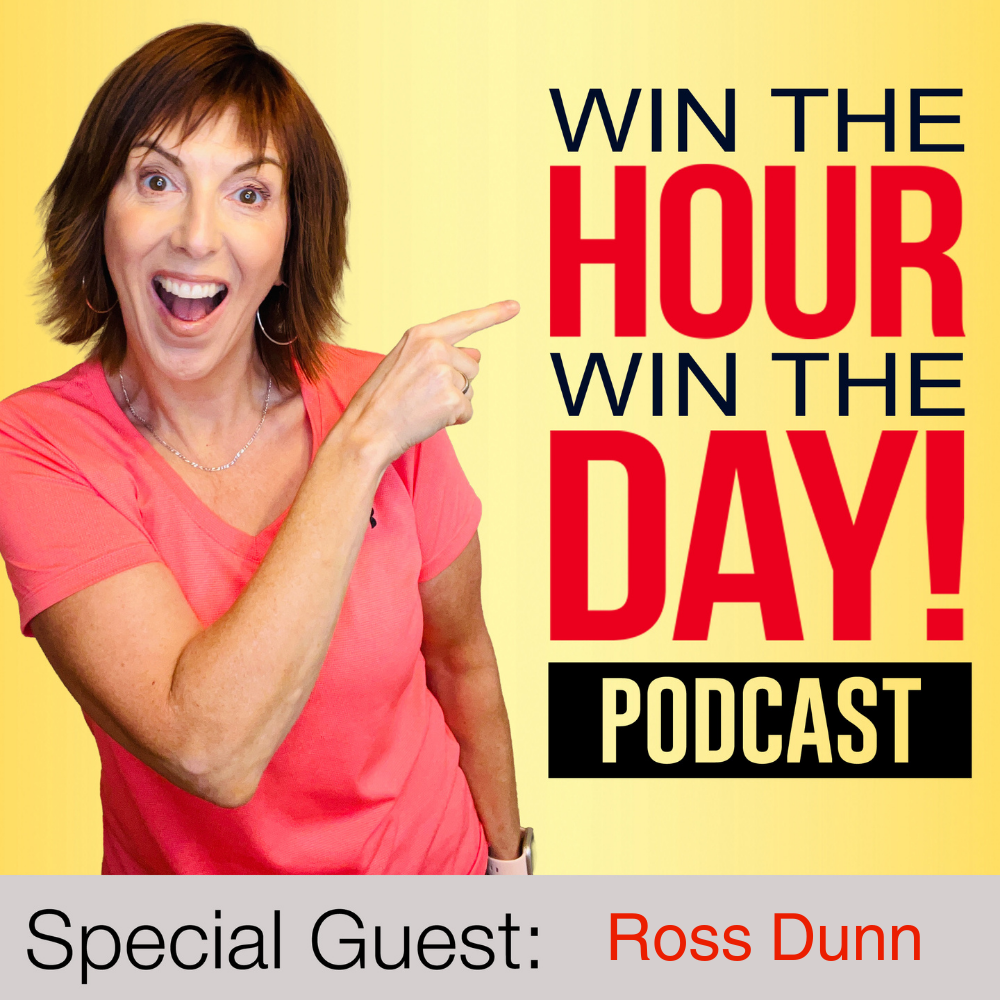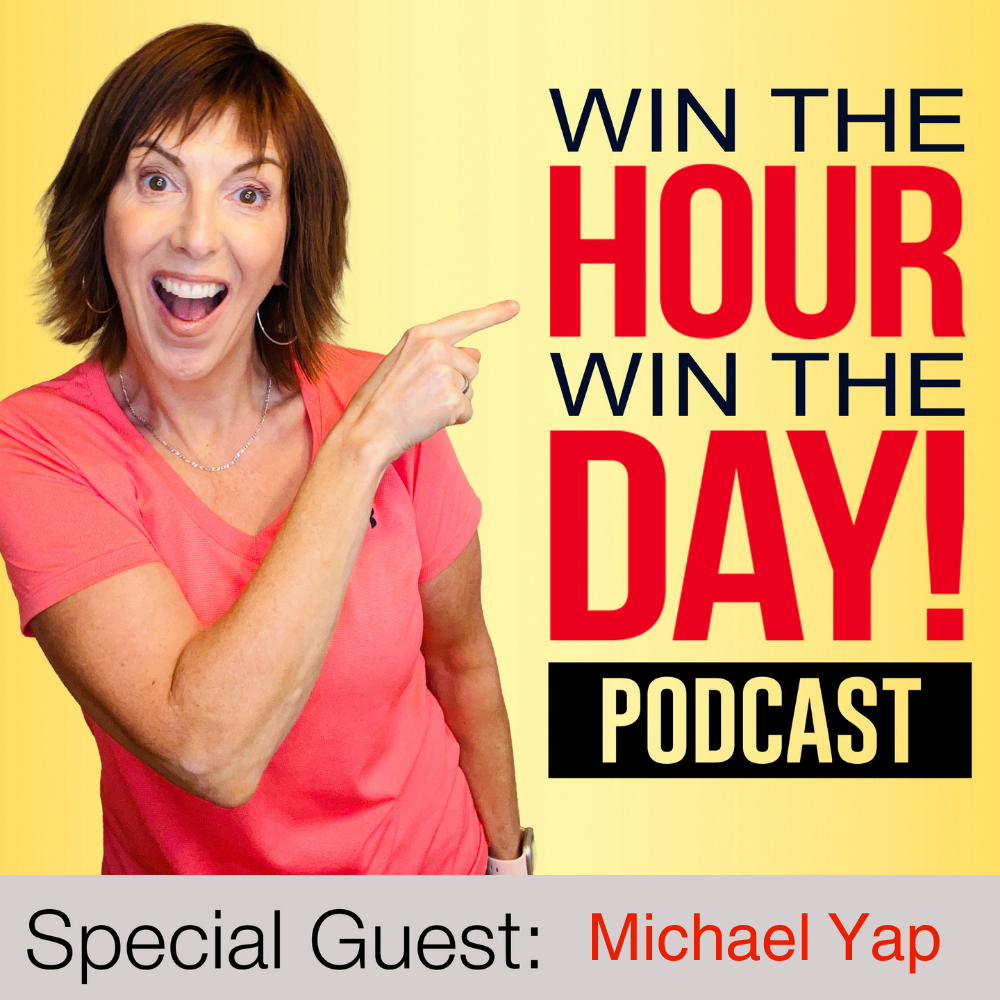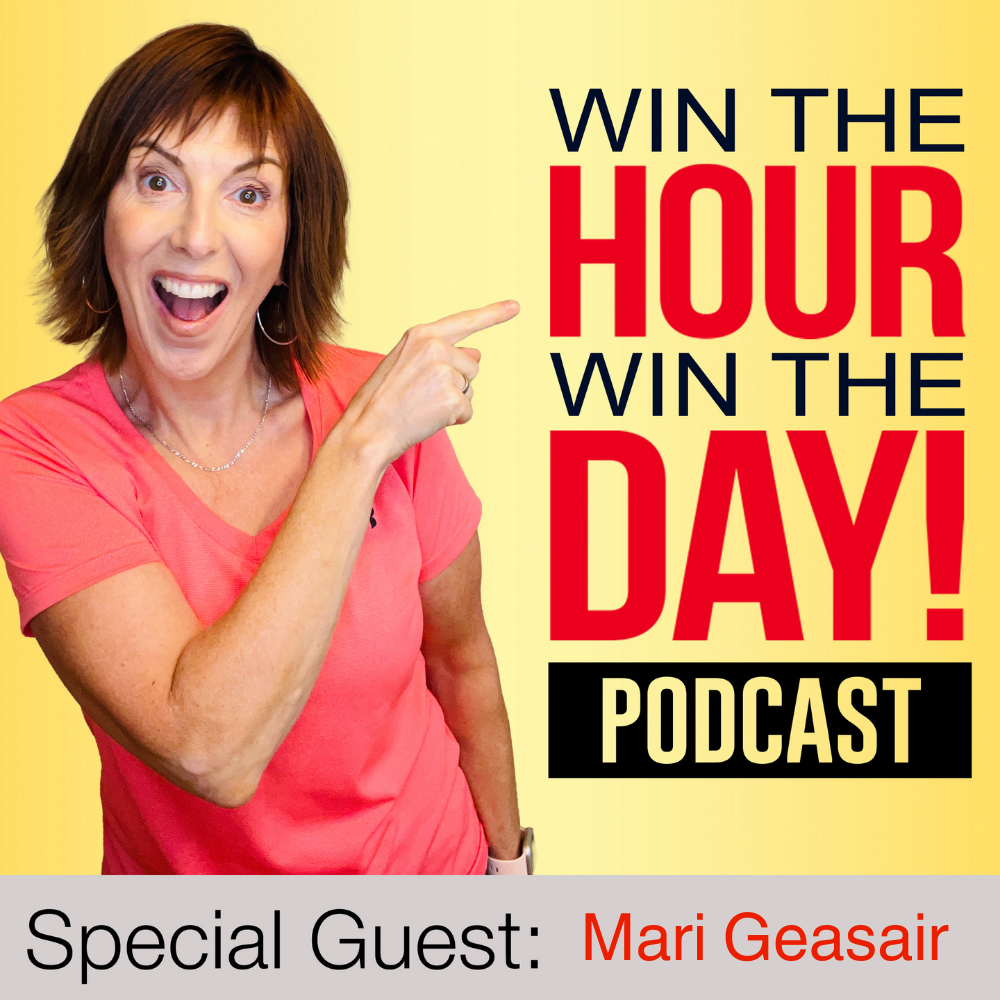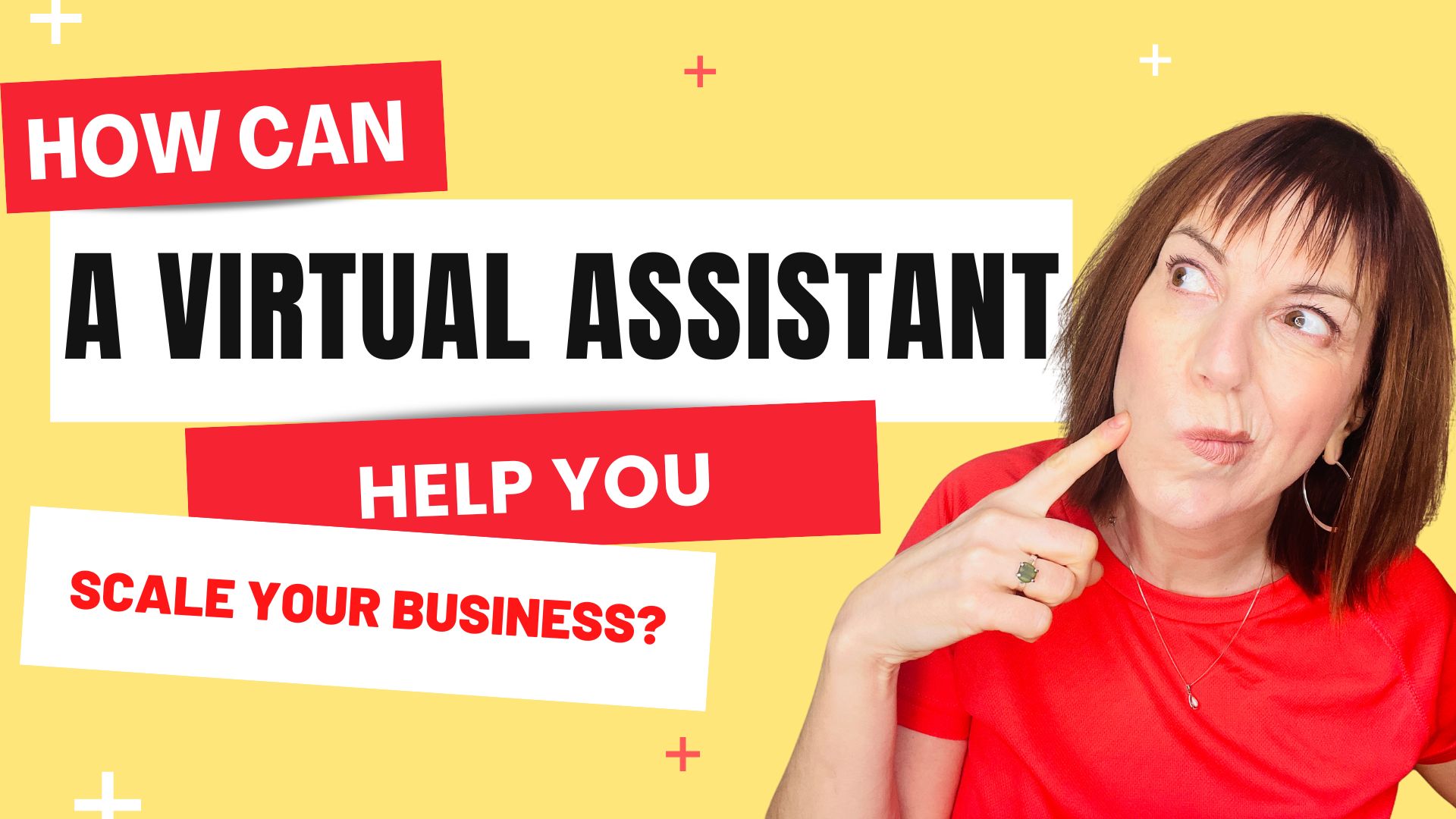Episode Summary
Julie Carrier is a bestselling author, speaker, and trusted coach on leadership development, confidence, and Brain-Based Public Speaking. She has been seen in millions of homes on NBC’s Today Show, The Education Channel, MTV’s goal-setting TV show ‘MADE’ as a confidence and success coach, and in The New York Times. Julie has spoken for live audiences of 20-70,000 Worldwide. Julie’s insight and expertise are like no other! Julie’s give us actionable steps to make any opportunity to speak interesting, and memorable.
Listen and learn:
-How to make a bigger impact on your audience today!
-What really matters when you’re speaking to ANY audience!
-How to leave your audience wanting more every time!
Join The Community: https://www.facebook.com/groups/WinTheHourWinTheDay/
Win The Hour, Win The Day! www.winthehourwintheday.com
Podcast: Win The Hour, Win The Day Podcast
Facebook: https://www.facebook.com/winthehourwintheday/
LinkedIn: https://www.linkedin.com/company/win-the-hour-win-the-day-podcast
You can find Julie Carrier at:
Website: girlslead.com
Facebook: https://www.facebook.com/juliemariecarrier
Email: julie@girlslead.com
LinkedIn: linkedin.com/in/juliemariecarrier
Win The Hour Win The Day
https://winthehourwintheday.com
Check out the Outsourcing Playbook For Busy Entrepreneurs here: https://winthehourwintheday.com/outsourcing-playbook
Julie Carrier Podcast
[00:09:05]Kris Ward: Hey everyone. Welcome to another episode of Win The Hour, Win The Day. I am so super excited. Kris Ward here, we’ve got Julie Carrier in the house. Now, listen, you guys know, I always jump right into the show. I dive right in, but you guys have got to here. You’ve got to hear her bio. It’s unbelievable.
[00:09:24] Listen carefully. You have no idea what a big guest we have on today’s show. Okay. Julie Carrier is a bestselling author, speaker and trusted coach on leadership development, confidence, and brain-based public speaking. She has been seen in millions of homes on NBC’s today’s show, the education channel, MTV’s goal-setting TV show.
[00:09:43] TV show made his confidence, success coach. Oh my gosh. It goes on New York times on and on. Also featured in chicken soup for the soul series with Jack Canfield. She has spoken for live audiences from 20 to 70,000. Worldwide. And [00:10:00] she’s also served a senior management consultant in leadership training and development for the Pentagon, where she created an instructed cutting edge leadership development programs for executives as a fellow at the Institute of coaching at Harvard medical school, you can see why I can skim over this.
[00:10:15] Oh my heavens. She specializes at mindset science and brain based learning, how to effectively engage audiences and facilitate transformational learning in a short time. This Emmy nominee has also been ranked as one of the top three speakers in the world of presidential presidential speaking at the international speech and debate championship in Rome as a leading authority on brain-based public speaking.
[00:10:42] Julie combined her unique background in professional speaking with brain science, to empower others, to speak their message and find their own voices. Her programs support a wide range of professionals from beginners to seasoned experts to learn this powerful framework, to create their own engaging message for any audience [00:11:00] while gaining powerful strategies to reduce nervousness and increase confidence in any situation, coaches, professionals, entrepreneurs.
[00:11:07] Speakers of all levels, choose to partner with Julie to develop their own message and deliver them with confidence and impact on webinars, video podcasts, virtual events, and definitely the live stage. Julie is also one of the hundred people worldwide to be recognized as the Marshall Goldsmith and 100 coaches.
[00:11:26] For top global leaders in the field, along with the Dean of Harvard medical school, the president of the world bank and the head of Rockefeller foundation, Julie. Oh my gosh. I can’t believe you’re here. We’re so excited to have you.
[00:11:40]Julie Carrier: oh my goodness, Kris, with your enthusiasm in that introduction, I just want to be around you 24/7. Well, fantastic. So thank you.
[00:11:50]Kris Ward: Well, Louisa and I, this, you, you could read this in a monotone and it still sounds pretty damn exciting. So oh my heavens, I don’t want to talk anymore because you were just like the brightest light and you have so much brilliance every time you, you could, you could talk to me about a houseplant or read a dictionary and I’d be like, oh my heavens, did you hear her?
[00:12:07] She did that because I have had the phenomenal pleasure of doing some work with Julie. So Julie, where should we start? Because boy, are we lucky to have you on this show?
[00:12:16]Julie Carrier: Oh, my goodness. Well, Kris, I wanna take you out to dinner or give you a certificate to your favorite restaurant, gratitude for adding more energy to my day, then coffee.
[00:12:27] I appreciate that. And I love coffee. So I think there’s so many different ways that we could start, but I think that the number one, maybe area that we could really focus on is the power that we each have to use our voice to affect and impact others. So I think a lot of us think that communication just happens by speaking, but communication first starts with our mindset and the fact that our micro expressions, the nuances of our voice tone, things that we really can’t consciously control are all impacted by the mindset we show up with before we have a conversation.
[00:13:05]Kris Ward: Okay, so what are we doing? I know you won’t say this wrong with our mindsets cause she’s so positive and she just makes everything sound so much more intelligent than I would. So where do you feel that the weakness is? As far as where that goes?
[00:13:21]Julie Carrier:Yeah, it’s interesting about the idea of weakness.
[00:13:24] I would say it’s, it can’t be considered a weakness, but it’s actually a lack of awareness. So often we’re told that in order to speak effectively, we need to move our hand gestures and we need to have intonation and eye contact and vocal variety. But I think what I’ve found is if people try to start there and they try to say, oh, wow, I want to be a technically perfect public speaker or presenter or engage people on zoom.
[00:13:48] If we start with the externals, we missed the most important thing. You know, when you think about some of the world’s best presenters, the world’s best engagers, for example, let’s even take the famed [00:14:00] Martin Luther king, one of the most moving powerful speakers that I think any of us have ever witnessed or heard, you know, people don’t say, oh, Martin Luther king was a great speaker.
[00:14:10] Oh. Because he gave great eye contact. Like that literally sounds insulting. Doesn’t it? No, Martin Luther king was a phenomenal speaker, because he knew how to move people. He literally was so compelling and so invested in his message that he was able to just by nature of his presence and his words, move people to take dramatic action that changed the world.
[00:14:33] So I think what’s interesting is his idea of communication. So many of our listeners, myself included when I started on this journey, thought oh, I want to work on public speaking and so many approaches or outside in, but the key is it needs to start inside out. And that starts with our mindset focused on why do we want to have this conversation?
[00:14:53] What is my goal for the person that I’m talking to? And even this idea of connecting with prospective clients or people that we can help. If our mindset comes from service, like I really want to serve and educate this person about what I can do so they can make a decision that’s very different than, oh, I’ve got to get a sale.
[00:15:11] I want this person to sign up to that mindset of service. Of rooting what we’re offering in the care and impact for others. This isn’t some fluffy feel good technique. This is actually neuroscience. When we focus on ourselves, versus we focus on serving others, it puts us in a completely different frame of mind that influences everything about what we say.
[00:15:34]Kris Ward: That makes so much sense to me. And it’s so funny that you mentioned Martin Luther king. Cause I’ve often thought of him over the years when you would see the clippings. And I thought, oh my gosh, if that was me, I’d be up there. I had a dream. Wait. My energy would have been like, I would have worked through that speech really quickly, but having said that, and I know you’re going to say nice things, but then that’s my invest message and all that other stuff I’ll speak for her.
[00:15:57] Well, what I would say is, you know, again, I’m speaking for you and you’re going to say you’re right. Because in the beginning, I tried really hard to not have my energy. Cause I thought it was too much and it was a bit of a blast. I actually took two courses on how to speak slower, which my husband said I should have got my money back on for them.
[00:16:17] But so I over-thought it. And so at the end of the day, Here’s my energy is flawed or not, people are going to gravitate to it or they’re not, but that’s who I am. So I should find my people anyhow. So I guess the mindset part again.
[00:16:32]Julie Carrier: Hundred percent just, you know, it’s interesting. I’m sure you, if you’ve worked in corporate America, many of our listeners they’ve had performance evaluations.
[00:16:41] And when I worked at the Pentagon, I’ll remember one particular day, I got a performance evaluation, mind you. I was teaching evidence-based like applied neuroscience leadership classes for executives. We had rankings that were off the charts so much so that they kept booking more, more classes, which has been complimented because if it doesn’t work at the Pentagon, you aren’t employed there.
[00:17:02] And so what was so interesting. As I had at my boss brought me in and was looking at my performance evaluation and one of the markings, which was really low. It said you are too happy.
[00:17:16]Kris Ward: Well, we could write that in the Pentagon, I guess.
[00:17:18]Julie Carrier:Well, here’s the thing, the Pentagon, yeah. Executives and the teams loved it.
[00:17:22] But for some reason, my manager at that time did not. And what I learned is that. Everyone has in their mind what they think, quote unquote, we should be. But at the end of the day, the world is hungry for authenticity. And you know what Kris, part of who you are is that amazing, joyful, positive energy. And the world needs that.
[00:17:41] Now, if we have someone that’s usually more mellow and thinks, oh, I should really have more energy and they try to fit themselves in that box. Guess what? They’re going to come across as inauthentic. It’s going to scream through every single thing that they say. So really when we effectively engage others, it starts with being really comfortable with who we are, wherever perceived flaws that include.
So for me, I do speak fast. I do have a lot of energy and you know what I learned not to apologize for that because that’s one of my super powers. Whereas another one of my friends is really funny as a speaker. And when I started out, I thought, oh gosh, I’m not funny. Like, I don’t really think I can be successful or I’m going to try to be funny.
[00:18:22] I have never given the worst speech in my life when I try to be funny. I realize that I am funny. I will do things that make people laugh. They laugh at me in a good natured way. But trying to make people laugh, trying to fit myself in that box where this other person had years of experience and holding that gift and talent. It’s just, we got to accept ourselves and come from a place of service.
[00:18:47]Kris Ward: It kind of reminds me of, you know, if you ever see the field of dreams where there’s one of the old players and it came back in time, he is just stepping off the baseball field and like his whole life is going to change. He turns back into a doctor and is very specific, but I guess that what it reminds me of, I guess we all get it in our head when we get called upon stage, or we’re going to do a speaking situation that, oh, okay.
[00:19:09] Now I was doing this over here, but I must transform into this different beam because now I’m going to be a speaker. I have been bestowed. You are a speaker, shoulders back, look, road up, pretend to be professional. And then you get lost in, you know, they liked you over here and now they want you over here in front of more people. And it’s really easy to get seduced into that. We should be changing.
[00:19:31]Julie Carrier: A hundred percent. And really a lot of that is self-imposed beliefs thinking, oh, I’m not good enough. I’m not, you know, I have to change into this other person, but the best advice I ever got when I started speaking was that good speakers will tell the stories of others, but it’s the great speakers that can master their own story. And I would offer that. That also includes how we treat ourselves, you know, good speakers, average speakers can get up there and act like a speaker, but it’s the great speakers that can hop up on that stage and be the exact same person on that stage as they were off.
[00:20:09]Kris Ward: Right. And that’s when you hear a big compliment to somebody that’s a celebrity like, oh, they’re the same off-camera as they are on camera.
[00:20:16] That also reminds me, too, of one of the things I learned from you. It was so subtle, but so profound for me is when you are engaging your audience and you are telling a story, you would give such. You know, meaningful detail to every aspect of the story. I know in my mind I would rush through that because I think, oh, I’ve got to get to the point.
[00:20:35] People are waiting or, you know, get, get to the point, Kris, you don’t have all day, but you would take us on such a journey that you kind of, you weren’t even paying attention. Like where am I now, when you wake up to the point of the story and it was so. Powerful. I know that’s obviously connected to all your brain-based wisdom and Olympic skills. So maybe you can tell us a little bit about that.
[00:20:58]Julie Carrier: Yeah. I’m so glad that you brought that up, Kris, because we all, we all love stories. We’ve all grown up with stories. Many of us have had our parents read to us over the years, reading storybooks. Our brains are wired for storytelling and the best stories are not just told, they’re re-lived.
So for example, like if I’m going to say, oh, I was sitting on a park bench in England and I looked over and, uh, pulled up a rolls Royce and out of the rolls Royce, Scott, a man with white hair and he was really smiley, but like, that’s not going to engage our audience because I’m completely stuck in my head.
[00:21:32] I’m thinking of the words that I’m going to say, as I tell the story. I wouldn’t even call it a story. I would call it more of like a disconnected lecture. But if I put myself back in that moment where I’m sitting on that park bench and I start to visualize what it felt like, what it would look like, and I tell this story from that place, it sounds very different.
[00:21:55] And then let’s see, and this is actually an excerpt of a story, I would say in a message. But I remember on one particular day, The sky was a blazing blue color. And there were these white, fluffy clouds. And I was sitting on this really hard wooden bench in a park in England. And what was interesting is I felt myself sitting on that bench.
[00:22:14] I felt my heart drop as I was burdened by so much overwhelming pay, pause. Do you see the difference? Like I’m painting word pictures, not because I’m thinking of the next words that I’m going to say. I’m literally sitting on the park bench and cheering for the sports casting my husband would say, what is going on in that space that I tell him the story from.
[00:22:37] So reliving the story, even if it’s talking to our clients about an impact that we’ve had on somebody’s life, or if it is a telling someone, a moving message to help them make different choices, we all can put ourselves back in our story and speak from it as if it’s we’re reliving it.
[00:22:56]Kris Ward: Almost like staying in the seat. Remain in the seat, you know, tell it as, almost as if it’s present, but just stay seated so that you are looking out from the story versus looking back on the story.
[00:23:09]Julie Carrier: A hundred percent. So you’re in the moment reliving it, instead of looking back at it or, you know, talking about it as a disconnected bystander.
[00:23:19] So for example, Even if I was doing a presentation about the curriculum that I’ve written and I was giving an example, kind of like a case study of the impact. And instead of saying, oh, well, I looked at the feedback and the feedback was really moving. And I was so proud of all the people we impacted.
[00:23:38] Right. Devoid of emotion. I’m kind of looking back. I was able to say, you know what? And yesterday I remember sitting on my couch as I had printed off 175 pages of feedback from people who had taken this course. And I was going through each and every line. And by the 10th page, I literally had tears streaming down my face.
[00:23:58] As I saw person after person talk about the transformative impact that it had on their lives. Do you feel the difference? We all can do that. And some people think, oh emotions, that’s scary. That’s vulnerable. Hey, you know what? We are emotional beings in this human experience. And if we can’t communicate with our emotions, we don’t give ourselves that permission.
[00:24:21] We are cutting off one of the most powerful tools that we have to engage others.
[00:24:26]Kris Ward: Yeah. And you know, you know that when you see other people do it, like you, you walk away and you think, oh, that was a powerful story. And you really got an insight to them and it really resonated and was impactful and anchored their message.
[00:24:39] And then yet when you are, I shouldn’t say you, who knows what you guys are doing out there. I get out in a situation, I think. Oh yeah. I gloss over it, or I think I got to the point quicker, like, oh, this is a, especially in business. Oh, this is a business thing. So I better keep, to cut to the chase and keep this oh, rolling. Right.
[00:24:59]Julie Carrier: Yeah. Well, I will say, you know, it’s one of those things where we have to give ourselves permission to show up and take up space, whether that is physically or emotionally or in terms of our verbal presence. It’s okay to take a breath. It’s okay to pause. It’s okay to have the privilege of the platform.
[00:25:19]Kris Ward: Yeah. Okay. So men, every time, just even listening to you, I could sit beside you while you ordered takeout. I’d be like, oh, I got to learn how to say that. The way she does it. They’re really good. It’s very inviting and smart. I’m going to rephrase that because I think for the rest of us, like, you know, we talk about in the beginning being authentic and being anchored to really, what is, do you want to be a service versus selling? You know, I know I’ve been there when my business was brand new and somebody asks something, well, what is it you do? And you feel like saying, listen, hold onto your hair. Cause I’m going to breathe in. I’m going to breathe out and I’m going to blow a lot at you and it’s going to push your hair back.
[00:25:57] Cause you’re almost like convincing mode, right? It does, it’s overwhelming. And so then I think too, the way you, the subtlety of the words you use is very engaging and very inclusive, very pulling somebody closer to you than sort of blasting at them. And so where does that begin and end with brain-based learning?
[00:26:22]Julie Carrier: Absolutely. Thank you for asking that. So we’ve all been in situations where we felt someone was trying to quote unquote, sell us something. I know that, that you probably think of many. I can think of many. I would n’t feel too good about that. It kind of leaves you feeling like the person trying to use you or.
[00:26:37] Grab something from you. So the key is this idea when it comes to any type of communication, it’s about connection first and that mindset of service. And then the language that we use influences the word pictures in our brain. So our brain actually remembers and sees words as images. Research has found that literally, if you say tomato, The brain will see a tomato and it’s mind, right?
[00:27:00] It’s not like it takes the word tomato, it puts the word tomato and it’s mine and then translates it literally we’ll see in images. So the words that we choose to use are very powerful in creating that sense of connection as long as they’re from an authentic place. So instead of saying things like, Hey, you should, I’ll say, Hey, I didn’t invite you to, or instead of, if we’re in a group, I’d be like, Hey, and in this group of people, I might say this.
[00:27:28] Team in this learning circle, creating a language that creates word pictures that build a sense of connection and community is very, very powerful. And so those things are our practice. This didn’t start naturally. I didn’t just automatically go from calling people in a group to a team. It was a conscious practice to think about what words I can use and bring into my everyday language.
[00:27:54] So that when I am teaching a class or I’m interacting with a potential group, people who can invest in my resources that I’ve practiced so much, that it’s a natural extension of who I am. Instead of me sitting there thinking, oh, I have to use connection language. Then I’m in my head. I’m out of my heart. And we cut off the emotional connection.
[00:28:14]Kris Ward: Which is where I am right now. Because just the other day, somebody asked, they actually asked me, you sort of searched for some help. And they were asking for my opinion. Yeah. And I said to them, you know, what, what would really work for you? And then I went, hold on. It was like backspace in the computer, backspace, backspace.
[00:28:27] I said, hold on. I invite you to think about what this, they’re like, what, what happened? Like, cause I just did this thing. You think you’d see me trying to switch keys in my brain. Right. And I was like, hold on, hold on. No, I need a better one.
[00:28:40] Julie Carrier: I mean. I’m sure they appreciated it. Still right. You know, cause it is, if we say you should versus I invite you to consider, all right, I’d love to collaborate on this.
[00:28:49] I would love to continue the conversation. Instead of saying, I want to schedule another meeting. You know, the language we use, again, as long as it’s coming from a sincere place is very powerful and builds collaborative relationships and clients opportunities as well.
[00:29:06]Kris Ward: All right. So we know you’re a lovely human being, very smart, very dynamic.
[00:29:10] So. With your capacity, though, I’m going to put you on the spot. Do you find it abrasive to be dealing with humans like us, where we’re walking around and we’re using all these, like pushing away words that you, you know, do you not constantly edit in your head? Oh, she said that this way it would be a little bit more inviting. Can you live a normal life or is that how you edit these things?
[00:29:31] You know, again, for me these words, because of the practice and because of making them part of my everyday language, it’s just a natural extension of myself. So if someone is in their space and their intention is sincere and honest, guess what, their words, even though they might not be creating as collaborative word pictures.If the person is honest and sincere, we literally literally like, I know I keep sounding like a broken record, but it’s this idea of mirror neurons.
[00:30:00] All right. So I don’t know if you’ve , I think you and I had talked about mirror neurons, but it’s essentially like if you have ever seen someone yawn, what typically may happen to someone watching them.
[00:30:10] Right. Yeah. They’re going to yawn. If you’re talking to someone that has tears in their eyes, because they’re telling such a moving story, sometimes what happens is what. Hmm, you get tears in your eyes, tears in your eyes. So the thing is we can sense intention. We can sense the other people’s motives for the most part, unless someone’s a sociopath, literally has disconnected themselves from their capacity to feel like right and wrong.
[00:30:35] Most people have a normal functioning brain. Our brains are wired to pick up on the neural firings of what’s going on in their mind, especially related to things like empathy or emotion. So if someone, if you’re coming up and talking to me, Kris, let’s say you’re still working on some of the, the, the language that builds inclusivity and connection, but you’re sincere and you care, guess what you could use one of the most like strongly worded.
[00:31:01] Divisive language, you know, tools, but I would still feel connected to you because the intent behind your language is, is still sincere. Now, if we can combine sincere attempted intent with some of the collaborative language is even more powerful, but knowing that our intent in and of itself is one of the most powerful things that we bring to any conversation.
[00:31:21]Kris Ward: Oh, my gosh. Okay. All right. You know, you, you got the mic, Julie, just cause we don’t even know what we don’t know. And this is really unbelievably powerful stuff. I think I’ve already used that word, but so many of us sign up and you’re like, okay, you’re right. Walk within the pyramid on the stage. If you’re a speaker or do this or pronunciate or all these things.
[00:31:39] And no one is talking about this stuff that I really truly. Really feel every time I speak to you, I see the depth and the power of that even more and more. So just tell us some other things that, you know, I know you won’t arrogantly say are overlooked by everybody else, but I will say it for you that the rest of us are, you know, the you’re not being educated on, the profoundness of this type of stuff.
[00:32:03]Julie Carrier: Yeah. So I think in the time that we have, there’s so many things that we could talk about, but I do think this idea for so long, people have been taught, oh, Hey, you know, to be an effective speaker, you have to be technically perfect. And in fact, there was one organization that had like a checklist of 47 different things that you had to do and move and say and eye contact in order to be a technically perfect public speaker.
And when I see people try to do that checklist, they become so disconnected from who they really are, that they become wildly ineffective as a public speaker. So I do say, start with your purpose and your values first. If you’re coming from a sincere place and this isn’t fluffy, this is research. Literally shows that being rooted in our values.
[00:32:49] And remembering why, what’s the ‘why’ behind what you’re doing? Like if someone says yes to your offer or invests in your program or decides to coach with you or work with you, how’s that going to actually make their life better? If you start there, all of those external things will naturally fall into place.
[00:33:06] In fact, there was a woman who had never given a speech before. And in part of this public speaking training I was doing for this group, she was terrified. She was like, I’ve never given a speech. Now you want me to get my first speech in front of, like my boss and all of my colleagues. We had her choose a topic that she was so passionate about.
[00:33:23] Then in fact, the moment she got up and started talking about it, she forgot how nervous she was. She was one of the most flawless, technically perfect public speakers I’ve ever seen. Her eye contact was amazing. Her hand gestures were on point. She paused, she moved around the room. She had so much energy.
[00:33:38] And guess what? Not once did we talk to her about pausing? Not once did we talk to her about moving her hand gestures. It came out as a natural extension of her passion. So I would want us to start there and then two, the other lie that so many people receive. I think it’s almost like socially conditioned as this idea of, oh, when I get ready to speak or do something brand new, I’m so nervous about it.
[00:34:02] And they interpret that nervousness as a sign that they shouldn’t do it or that they should stop. But I want people to understand that part of our brain is wired. To keep us small and keep us safe. And it thinks, and this is a very outdated part of our brain. So, you know, if we had a brand new computer and we’re trying to run software from like 30 years ago, how, how well would that go?
[00:34:26] Not well, not well, well, our brains are very similar. We have these amazing, incredible brains that have developed and grown over time. But we have this outdated software. That’s not just 30 years old. It’s hundreds of years old that thinks that in order to make sure we don’t get kicked out of the cave, we need to play it small and not make waves.
[00:34:45] But our modern rules of success are very different, right. They require us to constantly, especially as entrepreneurs step outside of our comfort zone. So I would invite everyone who’s listening, using that connection language there and invite everyone who’s listening to remember that nervousness, any time we step outside of our comfort zone, is normal.
[00:35:03] And it’s just outdated software trying to keep us small. And if we put it in its place and realize that that’s part of what comes with this idea of doing new things. We don’t have to listen to nervousness as a message, not to move forward. And we’re talking about healthy steps. Like if you feel truly terrified of something or you’re, you’re thinking about making a choice in your gut saying, no, that’s a different thing than the natural nervousness that happens when we do something new, just know that nervousness is part of the journey.
[00:35:29] Embrace it, keep practicing doing that new thing. And guess what? Over a period of time, it’s not going to feel scary anymore.
[00:35:36]Kris Ward: Oh, my gosh, Julie, we could do like a 12 week Netflix series on you. So, all right, Julie, when people want more of your absolute brilliance, where would they find you?
[00:35:47]Julie Carrier: You know, I think that I have many different ways that I serve the world right now.
[00:35:51] I do work with executives and adults, and I also do a lot of work with young people. So I think the best way to learn more about brain-based learning and about public speaking mastery would be through my LinkedIn. So it’s Julie Carrier on LinkedIn. If you’re interested in the work I’m doing to help girls build their confidence and build their speaking and their ability to show up in the world and use their voice, that’s girlslead.com.
[00:36:16]Kris Ward: Well, we will be sure to put that in the show notes. We cannot thank you enough for, I mean, there’s nothing more valuable. Somebody can give you their time and we are just appreciating yours. You have no idea. So thank you again for just showing up and being you.
[00:36:29]Julie Carrier: Well, and Kris, I have to say thank you for showing up and being you and using that amazing voice and the incredible wisdom that you have to help so many entrepreneurs get their lives back. Even just the coaching and mentoring that you’ve given me has been a game changer. So I want to thank you for your mission and your work, and also the opportunity to team together with you to give this message to the world.
[00:36:52]Kris Ward: Thank you so much, Julie, until the next show everyone. We’ll see you then. Win the Hour, Win the day. Thank you. [00:36:58]END….
[00:37:00] How are you doing? Yeah, that was super flew by. I know when we, we, uh, we gave you.

